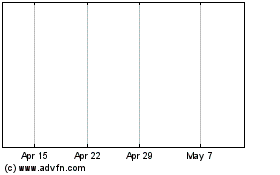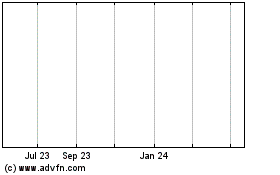TIDMAZN
RNS Number : 3493N
AstraZeneca PLC
22 September 2023
This announcement contains inside information
22 September 2023
Datopotamab deruxtecan demonstrated statistically significant
and clinically meaningful progression-free survival benefit in
patients with HR-positive,
HER2-low or negative breast cancer in TROPION-Breast01 Phase III
trial
First Phase III results in breast cancer for AstraZeneca
and Daiichi Sankyo's datopotamab deruxtecan
Plans for global regulatory submissions underway
Positive high-level results from the TROPION-Breast01 Phase III
trial showed datopotamab deruxtecan (Dato-DXd) demonstrated a
statistically significant and clinically meaningful improvement for
the primary endpoint of progression-free survival (PFS) compared to
investigator's choice of chemotherapy in patients with inoperable
or metastatic hormone receptor (HR)-positive, HER2-low or negative
(IHC 0, IHC 1+ or IHC 2+/ISH-) breast cancer previously treated
with endocrine-based therapy and at least one systemic therapy.
A trend in improvement for the dual primary endpoint of overall
survival (OS) was observed for datopotamab deruxtecan versus
chemotherapy. Data for OS were not mature at this interim analysis
and the trial will continue as planned to assess OS.
The safety profile of datopotamab deruxtecan was consistent with
previous clinical trials in breast cancer with no new safety
signals identified. All grade interstitial lung disease rates were
low.
Datopotamab deruxtecan is a specifically engineered
TROP2-directed DXd antibody drug conjugate (ADC) being jointly
developed by AstraZeneca and Daiichi Sankyo.
Susan Galbraith, Executive Vice President, Oncology R&D,
AstraZeneca, said: "Today's TROPION-Breast01 news is a significant
development for patients with HR-positive, HER2-low or negative
metastatic breast cancer whose tumours have become insensitive to
endocrine therapy and who currently face poor outcomes. We are
encouraged by these positive results."
Ken Takeshita, MD, Global Head, Oncology R&D, Daiichi
Sankyo, said: "The positive topline results from TROPION-Breast01
demonstrate the potential for datopotamab deruxtecan to become an
important treatment option for patients with HR-positive, HER2-low
or HER2-negative breast cancer in the second-line metastatic
setting. We look forward to realising the full potential of this
TROP2-directed antibody drug conjugate across breast cancer
subtypes through our ongoing Phase III programme, including two
trials in patients with triple-negative breast cancer."
More than two million people worldwide are diagnosed with breast
cancer each year.(1) HR-positive, HER2-low or negative breast
cancer is the most common subtype, accounting for more than 65% of
diagnosed cases.(1,2) Standard initial treatment for these patients
is endocrine therapy but most patients with advanced disease will
develop resistance, underscoring the need for additional
options.(3,4) TROP2 is a protein broadly expressed in HR-positive,
HER2-low or negative breast cancer.(5,6)
The data will be presented at a forthcoming medical meeting and
shared with health authorities.
AstraZeneca and Daiichi Sankyo have two additional Phase III
trials evaluating datopotamab deruxtecan in breast cancer.
TROPION-Breast02 is comparing datopotamab deruxtecan to
chemotherapy in patients with previously untreated locally
recurrent inoperable or metastatic triple negative breast cancer
(TNBC) who are not candidates for anti-PDL1 therapy.
TROPION-Breast03 is evaluating datopotamab deruxtecan with and
without Imfinzi (durvalumab) versus investigator's choice of
therapy in patients with Stage I-III TNBC with residual disease
after neoadjuvant therapy.
Notes
HR-positive breast cancer
Breast cancer is the most common cancer in the world and a
leading cause of cancer-related death.(1) More than two million
breast cancer cases were diagnosed in 2020 with nearly 685,000
deaths globally.(1)
Breast cancer is considered HR-positive, HER2-low or negative
when tumours test positive for oestrogen and/or progesterone
hormone receptors and negative or low for HER2 (measured as HER2
score of IHC 0, IHC 1+ or IHC 2+/ISH-).(2,7) HR-positive, HER2-low
or negative breast cancer is the most common subtype, accounting
for more than 65% of diagnosed cases.(2) Approximately 30% of
patients diagnosed with HR-positive, HER2-low or negative
metastatic breast cancer are expected to live five years after
their diagnosis.(2)
TROP2 is a protein broadly expressed in several solid tumours,
including HR positive, HER2-low or negative breast cancer.(5) TROP2
expression is associated with increased tumour progression and poor
survival in patients with breast cancer.(5,6)
TROPION-Breast01
TROPION-Breast01 is global, randomised, multicentre, open-label
Phase III trial evaluating the safety and efficacy of datopotamab
deruxtecan versus investigator's choice of single-agent
chemotherapy (eribulin, capecitabine, vinorelbine or gemcitabine)
in patients with inoperable or metastatic HR- positive, HER2-low or
negative (IHC 0, IHC 1+ or IHC 2+/ISH-) breast cancer who have
previously progressed on or are not suitable for endocrine therapy
per investigator assessment.
The dual primary endpoints of TROPION-Breast01 are PFS as
assessed by blinded independent central review (BICR) and OS. Key
secondary endpoints include objective response rate, duration of
response, investigator-assessed PFS, disease control rate and time
to first subsequent therapy.
TROPION-Breast01 enrolled more than 700 patients at sites in
Asia, Europe, North America, South America and Africa. For more
information visit ClinicalTrials.gov .
Datopotamab deruxtecan (Dato-DXd)
Datopotamab deruxtecan (Dato-DXd) is an investigational
TROP2-directed ADC. Designed using Daiichi Sankyo's proprietary DXd
ADC technology, datopotamab deruxtecan is one of five lead ADCs in
the oncology pipeline of Daiichi Sankyo, and one of the most
advanced programmes in AstraZeneca's ADC scientific platform.
Datopotamab deruxtecan is comprised of a humanized anti-TROP2 IgG1
monoclonal antibody, developed in collaboration with Sapporo
Medical University, attached to a number of topoisomerase I
inhibitor payloads (an exatecan derivative, DXd) via
tetrapeptide-based cleavable linkers.
A comprehensive development programme is underway globally with
more than 12 trials evaluating the efficacy and safety of
datopotamab deruxtecan across multiple tumours, including non-small
cell lung cancer, triple-negative breast cancer and hormone
receptor-positive, HER2-low or negative breast cancer. Beyond the
TROPION programme, datopotamab deruxtecan is also being evaluated
in novel combinations in several ongoing trials. AstraZeneca is
also researching a potential diagnostic test to help identify
patients most likely to benefit from treatment with datopotamab
deruxtecan.
Daiichi Sankyo collaboration
AstraZeneca and Daiichi Sankyo entered into a global
collaboration to jointly develop and commercialise Enhertu in March
2019 and datopotamab deruxtecan in July 2020 , except in Japan
where Daiichi Sankyo maintains exclusive rights for each ADC.
Daiichi Sankyo is responsible for the manufacturing and supply of
Enhertu and datopotamab deruxtecan.
AstraZeneca in breast cancer
Driven by a growing understanding of breast cancer biology,
AstraZeneca is starting to challenge, and redefine, the current
clinical paradigm for how breast cancer is classified and treated
to deliver even more effective treatments to patients in need -
with the bold ambition to one day eliminate breast cancer as a
cause of death.
AstraZeneca has a comprehensive portfolio of approved and
promising compounds in development that leverage different
mechanisms of action to address the biologically diverse breast
cancer tumour environment.
With Enhertu (trastuzumab deruxtecan), a HER2-directed ADC,
AstraZeneca and Daiichi Sankyo are aiming to improve outcomes in
previously treated HER2-positive and HER2-low metastatic breast
cancer and are exploring its potential in earlier lines of
treatment and in new breast cancer settings.
In HR-positive breast cancer, AstraZeneca continues to improve
outcomes with foundational medicines Faslodex (fulvestrant) and
Zoladex (goserelin) and aims to reshape the HR-positive space with
next-generation SERD and potential new medicine camizestrant as
well as a potential first-in-class AKT kinase inhibitor,
capivasertib. AstraZeneca is also collaborating with Daiichi Sankyo
to explore the potential of TROP2-directed ADC, datopotamab
deruxtecan, in this setting.
PARP inhibitor Lynparza (olaparib) is a targeted treatment
option that has been studied in early and metastatic breast cancer
patients with an inherited BRCA mutation. AstraZeneca with MSD
(Merck & Co., Inc. in the US and Canada) continues to research
Lynparza in these settings and to explore its potential in earlier
disease.
To bring much-needed treatment options to patients with
triple-negative breast cancer, an aggressive form of breast cancer,
AstraZeneca is evaluating the potential of datopotamab deruxtecan
alone and in combination with immunotherapy Imfinzi, capivasertib
in combination with chemotherapy, and Imfinzi in combination with
other oncology medicines, including Lynparza and Enhertu.
AstraZeneca in oncology
AstraZeneca is leading a revolution in oncology with the
ambition to provide cures for cancer in every form, following the
science to understand cancer and all its complexities to discover,
develop and deliver life-changing medicines to patients.
The Company's focus is on some of the most challenging cancers.
It is through persistent innovation that AstraZeneca has built one
of the most diverse portfolios and pipelines in the industry, with
the potential to catalyse changes in the practice of medicine and
transform the patient experience.
AstraZeneca has the vision to redefine cancer care and, one day,
eliminate cancer as a cause of death.
AstraZeneca
AstraZeneca (LSE/STO/Nasdaq: AZN) is a global, science-led
biopharmaceutical company that focuses on the discovery,
development, and commercialisation of prescription medicines in
Oncology, Rare Diseases, and BioPharmaceuticals, including
Cardiovascular, Renal & Metabolism, and Respiratory &
Immunology. Based in Cambridge, UK, AstraZeneca operates in over
100 countries and its innovative medicines are used by millions of
patients worldwide. Please visit astrazeneca.com and follow the
Company on social media @AstraZeneca .
Contacts
For details on how to contact the Investor Relations Team,
please click here . For Media contacts, click here .
References
1. Sung H, et al. Global Cancer Statistics 2020: GLOBOCAN
Estimates of Incidence and Mortality Worldwide for 36 Cancers in
185 Countries. CA Cancer J Clin. 2021; 10.3322/caac.21660.
2. National Cancer Institute. Surveillance, Epidemiology and End Results Program. Available at: https://seer.cancer.gov/statfacts/html/breast-subtypes.html . Accessed September 2023.
3. Lin M, et al. Comparative Overall Survival of CDK4/6
Inhibitors Plus Endocrine Therapy vs. Endocrine Therapy Alone for
Hormone receptor-positive, HER2-negative metastatic breast cancer.
J Cancer. 2020; 10.7150/jca.48944.
4. Lloyd M R, et al. Mechanisms of Resistance to CDK4/6 Blockade
in Advanced Hormone Receptor-positive, HER2-negative Breast Cancer
and Emerging Therapeutic Opportunities. Clin Cancer Res. 2022;
28(5):821-30.
5. Goldenberg D, et al. The emergence of trophoblast
cell-surface antigen 2 (TROP-2) as a novel cancer target.
Oncotarget. 2018;9(48): 28989-29006.
6. Vidula N, et al. Trophoblast Cell Surface Antigen 2 gene
(TACSTD2) expression in primary breast cancer. Breast Cancer Res
Treat. 2022 Aug;194(3):569-575.
7. Iqbal N, et al. Human Epidermal Growth Factor Receptor 2
(HER2) in Cancers: Overexpression and Therapeutic Implications. Mol
Biol Int. 2014;852748.
Adrian Kemp
Company Secretary
AstraZeneca PLC
This information is provided by RNS, the news service of the
London Stock Exchange. RNS is approved by the Financial Conduct
Authority to act as a Primary Information Provider in the United
Kingdom. Terms and conditions relating to the use and distribution
of this information may apply. For further information, please
contact rns@lseg.com or visit www.rns.com.
RNS may use your IP address to confirm compliance with the terms
and conditions, to analyse how you engage with the information
contained in this communication, and to share such analysis on an
anonymised basis with others as part of our commercial services.
For further information about how RNS and the London Stock Exchange
use the personal data you provide us, please see our Privacy
Policy.
END
MSCFIFIEALIFFIV
(END) Dow Jones Newswires
September 22, 2023 02:00 ET (06:00 GMT)
Astrazeneca (LSE:0A4J)
Historical Stock Chart
From Nov 2024 to Dec 2024

Astrazeneca (LSE:0A4J)
Historical Stock Chart
From Dec 2023 to Dec 2024
